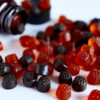Major depression is one of the most diagnosed mental conditions in the United States. In the 2020 NSDUH survey, about 8.4% or 21 million adults in the United States had at least one major depressive episode, but only an estimated 66% of adults with depression received treatment. The most commonly prescribed medications to treat depression are antidepressants. However, a 2022 study from King Saud University found that taking antidepressants is not associated with significant long-term health improvements compared to chronically depressed adults that don’t take antidepressants. The exploration for alternative treatments for depression began when the FDA approved Vagus Nerve Stimulation (VNS), known to treat refractory epilepsy (a condition of drug-resistant seizures) to treat chronic depression in adults in 2005.
Vagus nerve stimulation may be a good alternative treatment instead of traditional antidepressants.
Image Source: BSIP
Vagus nerve stimulation is where a surgically implanted device sends electrical impulses to the vagus nerve, one of the 12 nerves at the back of the head that goes directly to the brain. The vagus nerve stimulates parasympathetic activity, which can affect the body’s resting and digestive states, decrease heart rate, and control one’s mood. VNS reduces the production of proinflammatory cytokines, proteins that signal an immune response, which can improve depressive symptoms since there are higher levels of those cytokines in patients with clinical depression. In addition, a study on rats discovered that VNS raises norepinephrine levels in the prefrontal cortex, the part of the brain involved in decision-making and personality. Norepinephrine (NE) is a neurotransmitter that increases alertness and attention, and low amounts of NE can result in depressive symptoms. In a 5-year prospective observational study, researchers concluded that VNS as an additional treatment with antidepressants had better clinical outcomes and a higher remission rate than treatment with antidepressants only.
Depression is the second most costly medical condition in developed countries. While the initial cost of the VNS device and placement is expensive, VNS therapy is cost-effective and reduces hospitalization stays for patients with refractory epilepsy, although there is little research studying the clinical expense of VNS on depression. However, a prospective study from the University Hospital of Erlangen, Department of Psychiatry and Psychotherapy, compared VNS patients with major depression to non-VNS patients with major depression and discovered a significant improvement in depression symptoms in VNS patients along with a drop in hospitalizations, outpatient visits, and pharmaceutical treatments.
Vagus Nerve Stimulation has given promising outcomes as a therapeutic option to treat depression. Further studies on VNS have also explored other mental conditions like anxiety, PTSD, and sleep disorders. The growing field of VNS can be a milestone treatment for mental health, and hopefully, someday everyone will be able to benefit from these treatments!
Featured Image Source: VectorMine










